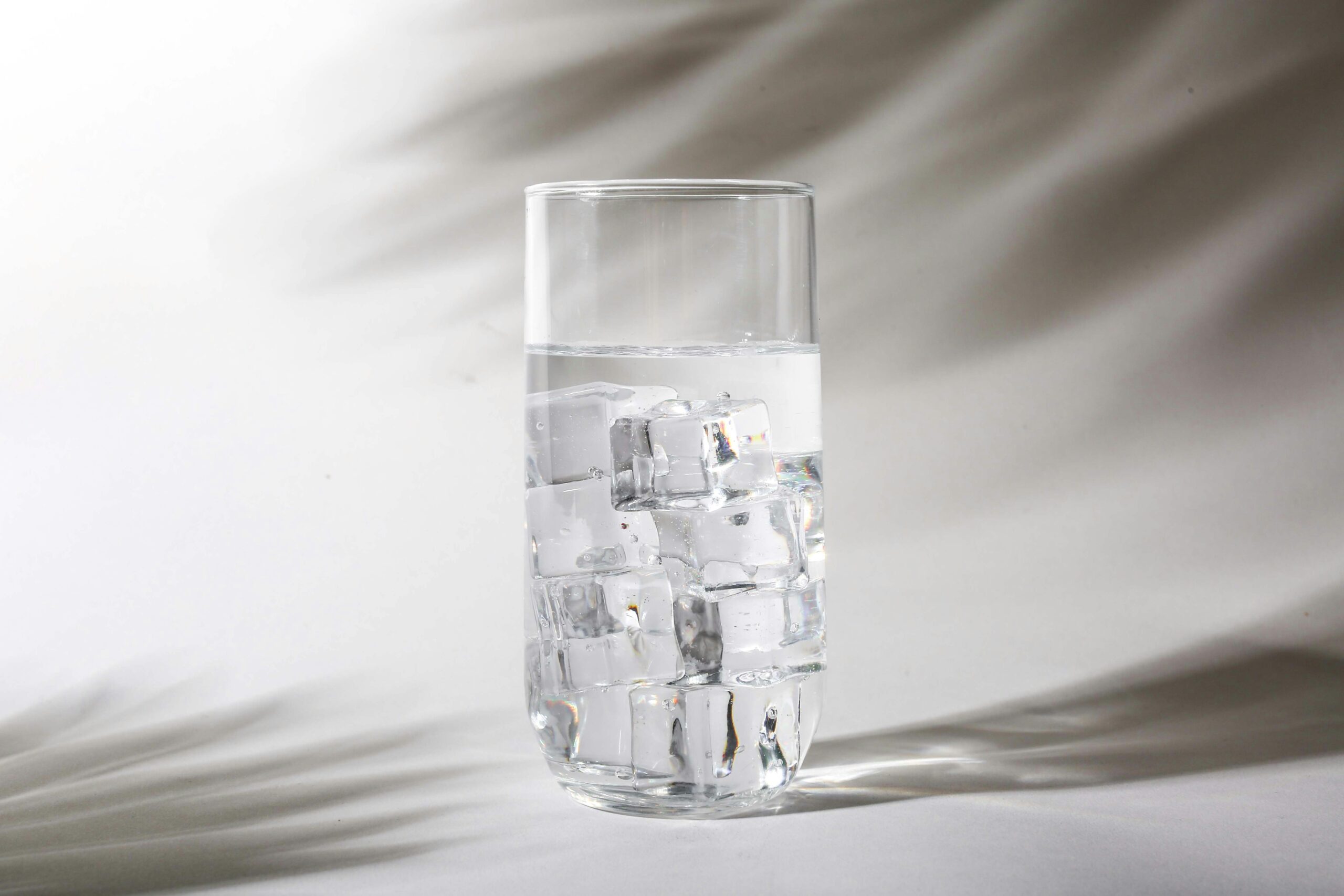Hot weather is an environmental condition that can harm human health. In recent years, there has been a lot of talk about climate change, whereby the climate may be warmer in various areas of the world. People are, therefore, more vulnerable to adverse weather conditions. Hot ambient conditions can increase morbidity and, in extreme cases, also cause mortality.
Thus, hot weather should not be underestimated, but knowing how to prepare for the coming hot weather. When the temperature exceeds specific values, the human body can react to these changes in particular ways. Prolonged exposure to high temperatures can, therefore, cause various symptoms.
Consequently, knowing the warning signs where your body is defending itself against hot weather is also helpful. Exposure to heat can cause dangerous complications that affect your overall health. Hot environments cause physical symptoms and can also affect a person's psyche. People can be weakened during hot weather and function less effectively. Some people are much less able to tolerate hot weather, so at-risk patients should take special care during hot weather. This is why preventing the effects of hot weather is so important. Many heat-related risks can be prevented with the right action plans. Learn today about recommendations on how to cope with hot weather and protect yourself from the sun.

Recently, interest in the effects of high temperatures has increased due to climate change. Slowly occurring changes are increasing the duration and intensity of warm weather globally, putting communities and health care at risk. The effects of hot weather on human organisms have long been known. As a result of exposure to the sun and high temperatures, the human body responds to heat stress![]() . The body's physiological responses have the goal of reducing the effects of heat. The brain regulates these reactions with the help of temperature-sensitive nerve cells. The effects of hot weather can therefore include:
. The body's physiological responses have the goal of reducing the effects of heat. The brain regulates these reactions with the help of temperature-sensitive nerve cells. The effects of hot weather can therefore include:
The human brain analyses and recognizes signals that may cause the body to overheat and sends information to cool the body. One way to lower the temperature is to redistribute the blood flow![]() , which causes the blood vessels to dilate. Blood is redistributed towards the skin to facilitate improved heat transfer from the muscles to the skin. Heat is released from the body to the outside to prevent the body from overheating. As a result of the increase in blood flow, the heart's demand for oxygen also increases, and the filling pressure of the heart is reduced. These reactions can be dangerous, especially for people with cardiovascular disease.
, which causes the blood vessels to dilate. Blood is redistributed towards the skin to facilitate improved heat transfer from the muscles to the skin. Heat is released from the body to the outside to prevent the body from overheating. As a result of the increase in blood flow, the heart's demand for oxygen also increases, and the filling pressure of the heart is reduced. These reactions can be dangerous, especially for people with cardiovascular disease.
The brain controls body temperature and releases sweat onto the skin due to excessive heat during hot weather. The secreted sweat that gets onto the skin aims to remove body heat while evaporating![]() . The amount of sweat secreted depends on the body's needs, and this natural cooling process also affects the excretion of metabolic products. Therefore, the body should be constantly hydrated during hot weather, as water evaporates in sweat. Excess evaporated water, on the other hand, can cause dehydration, which reduces blood volume. This process is also dangerous for people with cardiovascular disease.
. The amount of sweat secreted depends on the body's needs, and this natural cooling process also affects the excretion of metabolic products. Therefore, the body should be constantly hydrated during hot weather, as water evaporates in sweat. Excess evaporated water, on the other hand, can cause dehydration, which reduces blood volume. This process is also dangerous for people with cardiovascular disease.

Overexposure to hot weather can cause many health problems. The body can defend itself against high temperatures, but in some situations, it may not be able to protect itself sufficiently. It may be due to a body weakened by illness or by environmental conditions that are too intense. As such, hot weather can lead to complications such as:
Hot weather mainly affects the cardiovascular system. Therefore, patients with heart disease should primarily protect themselves from hot weather, as high temperatures can be hazardous. Dilated blood vessels can cause an increased demand for oxygen by the heart. In people with heart problems, oxygen delivery to the organ may not fit or be impaired. Impaired oxygen delivery, in turn, can cause cardiac ischemia![]() , a disease with dangerous consequences.
, a disease with dangerous consequences.
Ischaemic heart disease is a set of symptoms that occur when there is an insufficient supply of oxygen and nutrients to the cells. Ischaemic heart attack, on the other hand, can cause myocardial infarction and cardiovascular collapse, which are potentially fatal conditions. Heat stress can, therefore, exacerbate many diseases, and seniors and people with chronic health problems mostly feel the consequences.
The secretion of sweat that protects the body from overheating can also have dangerous side effects due to dehydration. Therefore, you must replenish fluids during hot weather to avoid dehydration. When the body's water content drops to a level that makes it difficult to function properly, various symptoms can occur. In addition, during hot weather, the body is more likely to become dehydrated when physically active. Chronic dehydration can cause many diseases, mainly kidney problems![]() . Kidney dysfunction often gives little characteristic symptoms or is asymptomatic for the long term, but it is a dangerous condition that causes progressive loss of organ function.
. Kidney dysfunction often gives little characteristic symptoms or is asymptomatic for the long term, but it is a dangerous condition that causes progressive loss of organ function.

Heat stress of high intensity can exceed the limits of the human body. Where thermoregulatory capacity is insufficient to cool the body, overheating can occur. Hyperthermia, or overheating of the body, is a condition where the body temperature is above average. This condition is a severe health risk and can cause fatal heat stroke![]() . As a result of heat stroke, various organs and systems of the body become impaired. The symptoms of overheating vary, but a quick diagnosis can be made by measuring the body temperature with a thermometer. In such situations, it is essential to cool down the body, and in the case of heat stroke, medical help should be called.
. As a result of heat stroke, various organs and systems of the body become impaired. The symptoms of overheating vary, but a quick diagnosis can be made by measuring the body temperature with a thermometer. In such situations, it is essential to cool down the body, and in the case of heat stroke, medical help should be called.
Hot weather causes heat stress and can damage various organs. An example is the kidneys, which can stop functioning correctly due to dehydration. Dehydration due to hot weather can cause acute kidney damage or chronic diseases of this organ. In addition, hot weather combined with conditions such as increased oxidative stress and ischemia can damage cells, tissues, and organs.
Organs at risk include the lungs, brain, intestines, and liver. High temperatures can lead to pulmonary edema, which can result in dangerous respiratory failure. This is hazardous for people with respiratory diseases. People struggling with this type of illness are also vulnerable during hot weather due to hyperventilation associated with the heat and the increased air pollution seen during hot weather.
The symptoms of excessive effects of hot weather on organisms can be various. High temperatures outside can lead to heat stress, and this condition is a risk for many of the diseases described above. Find out more about recognizing the signs of an overheated body to guard against complications. Symptoms of heat stress include:

Exposure to hot weather can cause symptoms such as swelling![]() of various body parts. This occurs due to the body's natural reaction to dilate peripheral vessels. In addition, dehydration caused by hot weather can increase salt concentration in the body, which promotes swelling and muscle spasms
of various body parts. This occurs due to the body's natural reaction to dilate peripheral vessels. In addition, dehydration caused by hot weather can increase salt concentration in the body, which promotes swelling and muscle spasms![]() . People who remain seated or standing for long are prone to the cutaneous type of heat edema, while muscle movement can help improve circulation.
. People who remain seated or standing for long are prone to the cutaneous type of heat edema, while muscle movement can help improve circulation.
Hot temperatures can cause headaches, dizziness, and even temporary unconsciousness. The fainting state is caused by too little blood flow to the brain. During heat stress, blood circulation in the skin increases to cool the body, leading to insufficient oxygen for different organs. Therefore, dehydration and reduced blood pressure can cause fainting. Syncope can also occur due to dehydration, accompanied by signs such as dry mouth and a strong feeling of thirst.
A different effect of hot weather can be hyperventilation![]() , i.e., acceleration of breathing. When breathing speeds up, it can be accompanied by symptoms such as feelings of breathlessness, chest pain, and also anxiety. Hyperventilation can also cause paresthesia, a sense of numbness in the limbs and other areas of the body. An increase in the frequency of inhalations and exhalations due to hot weather can signal the need to cool down and calm down.
, i.e., acceleration of breathing. When breathing speeds up, it can be accompanied by symptoms such as feelings of breathlessness, chest pain, and also anxiety. Hyperventilation can also cause paresthesia, a sense of numbness in the limbs and other areas of the body. An increase in the frequency of inhalations and exhalations due to hot weather can signal the need to cool down and calm down.

Exposure to hot weather can also cause skin symptoms. Heat rash is a pathological skin condition caused by a blockage of the sweat glands by the horny part of the epidermis. The result is an inflammatory reaction that can cause a feeling of itching![]() and a rash on the skin. Cooling the skin and using special lotions are essential in alleviating such conditions.
and a rash on the skin. Cooling the skin and using special lotions are essential in alleviating such conditions.
Scorching weather can also result in psychological symptoms. The first sign may be fatigue, which impairs function. However, general fatigue can also accompany different symptoms, such as malaise![]() and irritability
and irritability![]() . Individuals may become anxious due to the heat, which causes confusion and disorientation. Increased anxiety can also be triggered by dehydration. Such signals should not be ignored, as heat exhaustion can cause heat stroke.
. Individuals may become anxious due to the heat, which causes confusion and disorientation. Increased anxiety can also be triggered by dehydration. Such signals should not be ignored, as heat exhaustion can cause heat stroke.
Some people may be more vulnerable to hot weather and its effects. People at risk of heat-related illnesses should take extra care on warm days and follow preventive recommendations. Risk groups include:

Healthy adults tolerate inclement weather better than seniors and children. Children are more prone to dehydration because their thirst response![]() is less intense, which may result in them not replenishing the fluids missing in their bodies. Children's bodies also show less sweat production, resulting in overheating exposure. Seniors, on the other hand, are often at greater risk of cardiovascular disease
is less intense, which may result in them not replenishing the fluids missing in their bodies. Children's bodies also show less sweat production, resulting in overheating exposure. Seniors, on the other hand, are often at greater risk of cardiovascular disease![]() . The overall functioning of the heart in seniors may be impaired, which makes them vulnerable to the health consequences of heat.
. The overall functioning of the heart in seniors may be impaired, which makes them vulnerable to the health consequences of heat.
Certain chronic diseases, mainly cardiovascular and kidney diseases, can cause patients to tolerate high temperatures less well. Respiratory, neurological, and diabetes diseases can also be dangerous. Disease-related difficulties and the inability to self-care can also be risk factors for heat.
Some medications affect the body, so high temperatures can become more dangerous. Diuretics induce vomiting or diarrhea and can pose a risk of dehydration, which is an additional risk factor in hot weather. In addition, people taking antihistamines![]() , antidepressants
, antidepressants![]() , and anticholinergics
, and anticholinergics![]() should also exercise caution. Some medications can cause photosensitivity.
should also exercise caution. Some medications can cause photosensitivity.
Some workers are more vulnerable to weather conditions. Those who work outdoors are more vulnerable to the effects of hot weather, and physical work further increases this vulnerability. Heavy physical work in hot weather can cause heat stroke. Therefore, it is important for employers to provide the right conditions for employees.
Don't put yourself at risk of health problems by not protecting yourself from the heat. Adequate protection from hot weather is relatively easy, and it can prevent illnesses and significantly improve your quality of life. Following the recommendations will avoid the unpleasant consequences of heat stress.

Physical activity is necessary and good for your overall health. However, be careful on hot days. Resting during hot weather is especially recommended for seniors and people with cardiovascular disease. Physical activity further stimulates sweat, which can cause dehydration and weakness. Therefore, leave hard training for cooler days.
Remember to drink more often in hot weather. Water and fluids rich in electrolytes are most advisable. You can also eat more fruit with a high water content; it's also a good way to hydrate your body extra. Also, remember that the body needs more water during exercise.
Try to avoid the sun or protect yourself from it on hot days. UV filter creams are essential for your skin. Using this type of cream will protect you against sunburn and skin cancer. In addition to this, it is a good idea to wear airy clothes made of natural materials, which will protect your body from overheating. Also, remember to spend only a little time outside when the temperature is very high. In addition, you can cool down with wet, cold compresses.
Hot weather can be hazardous to health. The human body can naturally defend itself against heat, but in some cases, it may not be compelling enough. Hot weather can cause many illnesses and problems. To guard against these, it is worth knowing how to recognize the symptoms of overheating. For some people who are at risk, this knowledge is beneficial. In addition, preventive measures such as hydration and limiting exposure to the outdoors are also essential.